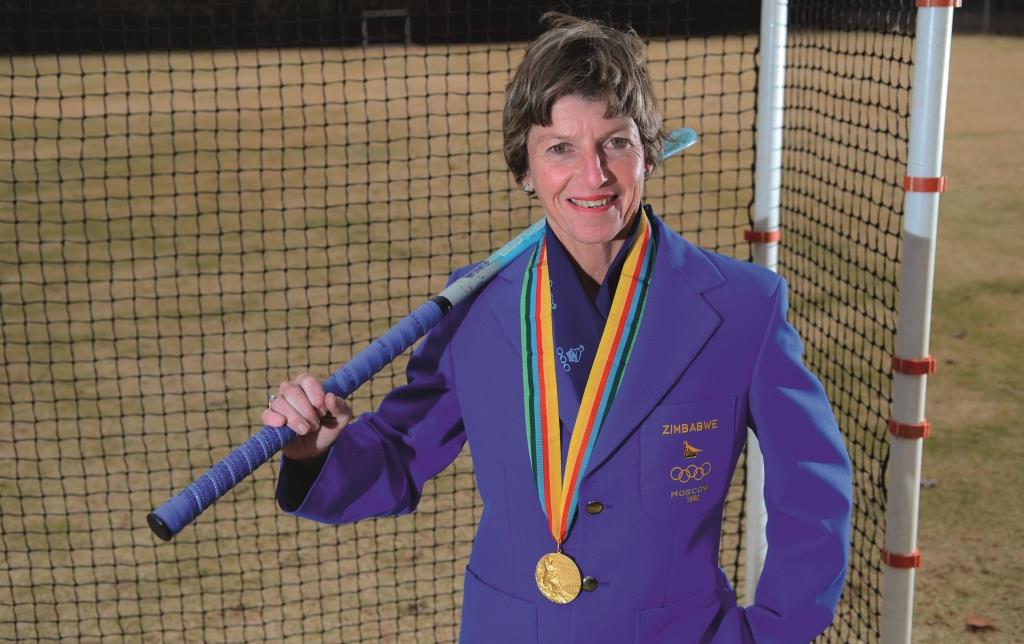Brenda Howden wears her eminence and her gold medal lightly.
“I don’t blow my own trumpet. A lot of children here do not know I have won an Olympic gold medal,” she smiles.
Howden is a picture of fitness and understatement, on this cool winter’s afternoon at Auckland Park Preparatory School in Johannesburg, where she is headmistress. As well as her eminence, she also wears lightly her blue 1980 Olympics jacket. It fits like a glove and you can easily imagine she could still tear down the wing, hockey stick in hand.
It is ironic that, 32 years ago, Howden, then known as Brenda Phillips, was considered too weak to make the grade at the Olympics. She was one of the Bulawayo contingent, which included striker Pat McKillop, goalkeeper Sarah English and Helen Volk.
Howden, then 22, was teaching at her old school in Bulawayo, Townsend High School, when the call to Moscow came. The excitement was tempered by doubt over whether she was strong enough.
Loading...
“For the next six weeks I had to get up at 4am and got for weightlifting in the gym. Then I had to go to school to teach and during break time I would practise goal shooting. Then, after school, I would go over the road to the nearby race track and run until 9pm at night,” she says.
Howden made it to Moscow and was surprised by what she found. The streets were drab, the shop windows were empty and there were queues for food.
“It seemed that everything was in black, white or grey. We could go into our cafeteria at the Olympic village and order whatever we wanted, but outside people were suffering,” she says.
Security was tight at the Games, but for the team, who were all very young, it was a golden excursion, as well as a sporting event. Howden kept a scrapbook that tells the story of the entire trip; from the good luck cards before they went; to a program from the ballet; pictures of the Kremlin and even a photograph of Britain’s Steve Ovett on his victory lap, after winning his only Olympic gold medal in the 800 meters.
“We even bunked one night to go and see the Moscow underground. It is beautiful and the stations had chandeliers in them,”she says.
There was a huge crowd when the team touched down in Harare. Drum majorettes were on the tarmac and people packed the airport. In the crowd was 11-year-old Lindsey Carlisle on her father’s shoulders.
“The plane was late, but that didn’t dampen our enthusiasm. When they came out we were all looking for the gold medals around their necks,” says Carlisle.
“The arrivals hall was full. I remember seeing the captain Ann Grant and we moved closer so I could touch her medal and I knew then what I wanted to do with my life. I turned to my dad and said I want one of those one day. He said I had better start working towards it.”
True to her word, Carlisle, who grew up in Zimbabwe, but was born in Johannesburg, became captain of the South African hockey team. She went to two Olympics, Sydney and Athens, but brought back no medals and could have been forgiven for being disappointed.
“I never really thought of it that way. Just going to the Olympics and being regarded as one of the best athletes in the world is good enough for me.”
Howden flew home to Bulawayo where schoolchildren had been bussed in from miles around to clap her through arrivals. In the months that followed, she replied to fan mail and autograph hunters from around the world and attended numerous functions and speaking engagements. In 1984, she moved from Bulawayo to South Africa, where she is married with two sons, and where she trains youngsters in hockey.
“I would like to go back to Moscow one day, just to see what it looks like. I am told it has changed,” she says.
“I have no regrets. The Olympics stood me in good stead and it taught me how to fight to the top and never give up.”
Golden words from a golden girl.
Loading...
